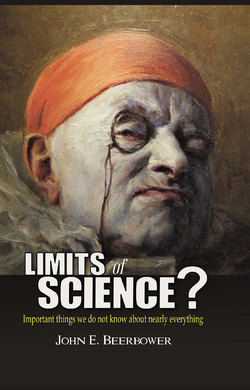Читать книгу Limits of Science? - John E. Beerbower - Страница 47
На сайте Литреса книга снята с продажи.
Deductive theories again
ОглавлениеIn addition to the use of mathematical logic to explore the implications of the axioms of a deductive theory, there is “the interesting possibility that mathematical consistency might be used to guide us, along with experimental observation, to the laws that describe physical reality.” Cox and Forshaw, Why Does E=mc2?, p.25. In other words, in the development of a theory, one might find ideas by considering the assumption that the correct theory will be internally consistent from a mathematical standpoint. Thus, one can do theory construction by a combination of inductive empirical reasoning and abstract mathematical reasoning, adding to the equations suggested by the data factors suggested by the mathematics. Of course, the prudent course is to conclude that the propositions are, at least, worth considering and then look for experimental methods to attempt to support or disprove the conclusion. One would still want to test the resulting theory against observation.
To investigate this question a bit further, let us take another look at deductive theories. Such theories, as noted, will have a set of axioms or assumptions and rules for manipulation. In some cases, one might be able to test the assumptions to determine whether they are empirically sound. If they are, then the results of the theory (the predictions) would be expected also to be empirically sound if the rules of manipulation (the mathematics) correspond to the laws of nature, that is, to the actual causal relationships at work. In that type of theory, the “validity” of the mathematics is effectively an empirical question. In contrast, one might have a deductive theory where the axioms are either not verifiable or are not really empirical, that is, they are either merely assumptions or are essentially definitions. There will also be the rules of manipulation or the mathematics. For such a theory to have scientific meaning, there will need to be certain variables that can have empirical content. So, essentially, one inputs certain observations and the theory generates a predication of certain other potential observations. If the theory “works,” one will find that the predicted observations occur.
The point I want to make is that in this type of deductive theory, the assumptions or definitions need not have empirical content (or be “true”) and the mathematics need not mimic the actual causal relationships at work; the theory just gives the right answers. All that one can say about the mathematics is that it works.
